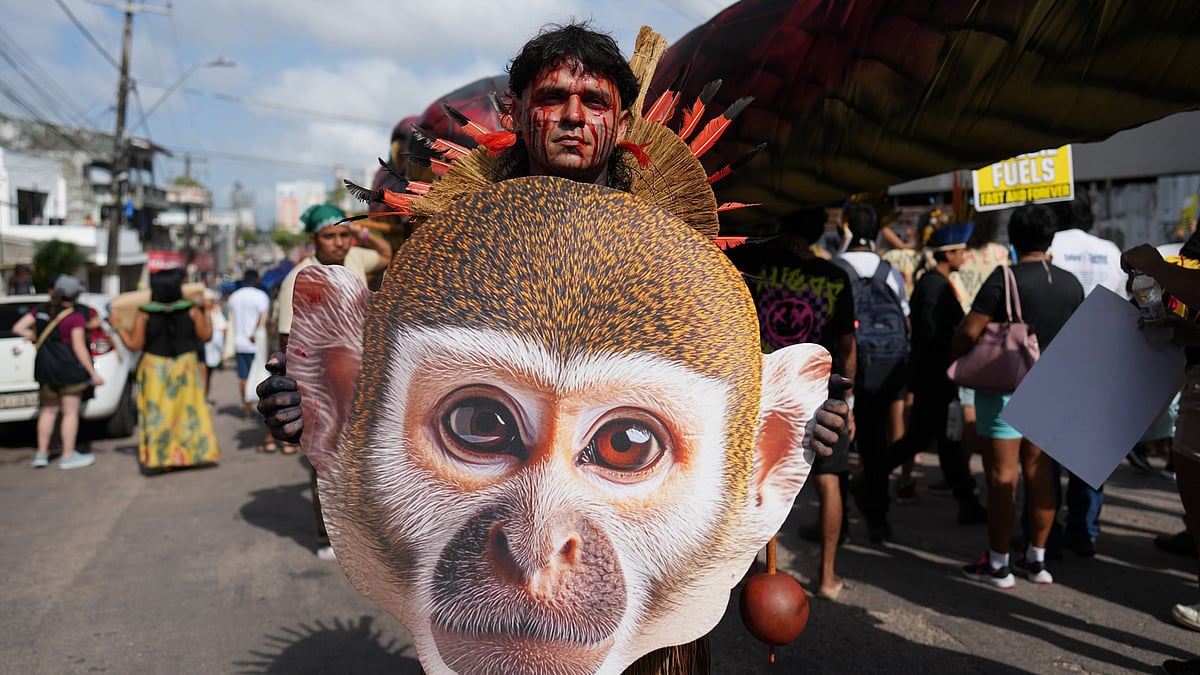Environment
COP30 ends without fossil fuel phase-out pledge despite pressure from 80 nations
Belém deal calls only for “voluntary” cuts to oil, coal and gas as producers resist tougher terms and the US skips the summit

The UN climate summit COP30 in Belém, Brazil concluded on Saturday with an agreement that contains no direct reference to phasing out fossil fuels, a bitter outcome for more than 80 countries, including the UK and EU, that had pushed for a commitment to end the use of oil, coal and gas at a faster pace.
Oil-producing nations held firm that they must be allowed to continue using fossil fuel resources to grow their economies, even as the UN has warned that efforts to limit global temperature rise to 1.5°C above pre-industrial levels are failing.
The final deal, called the Mutirão, calls on countries to 'voluntarily' accelerate action to reduce fossil fuel use rather than binding them to specific targets. That language triggered frustration from several delegations.
Colombian climate delegate Daniela Durán González criticised the COP presidency for not allowing countries to formally object in the final plenary, saying, “We have sufficient scientific evidence showing that more than 75 per cent of global greenhouse gas emissions come from fossil fuels. It is time the Climate Convention starts talking about that reality.”
Complicating negotiations was the absence of the United States, the first time the country has not sent a delegation, after US President Donald Trump announced plans to exit the Paris climate agreement and dismissed climate change as “a con”. Veteran climate negotiator Jennifer Morgan said the US no-show left a “hole” in overnight negotiations, noting that blocs such as the EU and UK often rely on Washington’s support when oil-producing nations push back.
Published: undefined
Despite deep divisions, many participants expressed relief that the talks did not collapse or reverse past climate agreements.
Antigua and Barbuda’s climate ambassador Ruleta Thomas said the continuation of the process itself was important, “where every country can be heard.” Saudi Arabia reiterated that “each state must be allowed to build its own path” based on its economic circumstances.
The fortnight-long summit was marked by chaos, floods at the venue, shortages of running water, repeated evacuations, protests breaching security lines and a large fire that damaged the roof on Thursday. Brazil selected Belém to highlight the Amazon rainforest and attract greater climate finance to the region, though the host country also faced criticism for its own offshore drilling plans, which are projected to increase oil and gas production into the early 2030s.
Reactions to the agreement were mixed. India called the deal “meaningful.” The alliance representing 39 small island and low-lying states said it was “imperfect” but a step toward progress. Poorer nations welcomed movement on climate finance and a clearer acknowledgment that countries with historical emissions carry specific responsibilities — “a shift in the needle,” said Sierra Leone’s Environment Minister Jiwoh Abdulai.
For countries that fought through the night for stronger fossil fuel language, however, the outcome was a setback. UK Secretary of State for Energy and Climate Change Ed Miliband called the summit “a step forward” but admitted he had hoped for more. EU climate commissioner Wopke Hoekstra said Europe “would have preferred to have more ambition on everything.”
Brazil launched the summit with the Tropical Forests Forever Facility, a fund paying nations to protect tropical forests, which secured at least Rs 6.5 billion from governments by the final day, although the UK has not yet contributed. More than 90 countries also backed a proposal for a global roadmap on deforestation.
Published: undefined
Follow us on: Facebook, Twitter, Google News, Instagram
Join our official telegram channel (@nationalherald) and stay updated with the latest headlines
Published: undefined